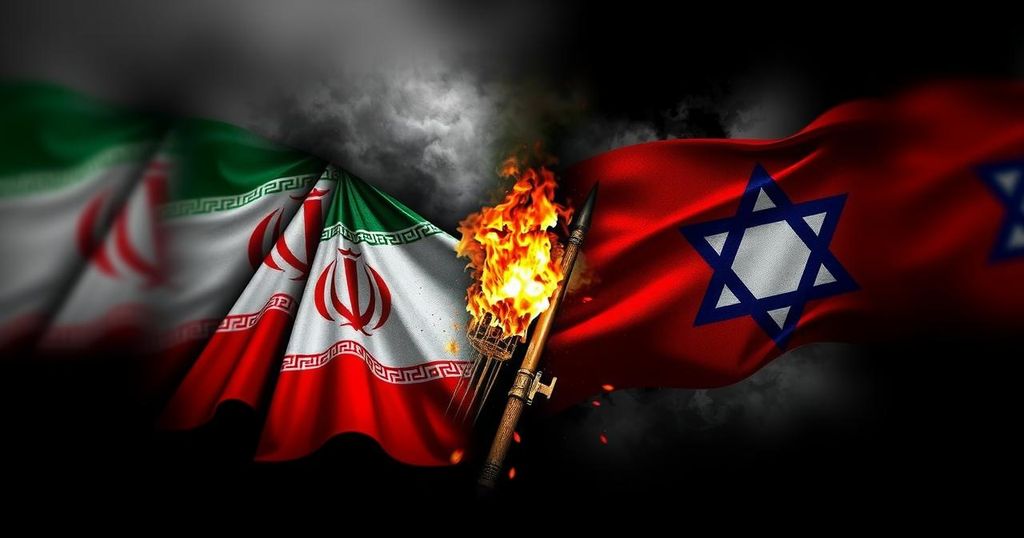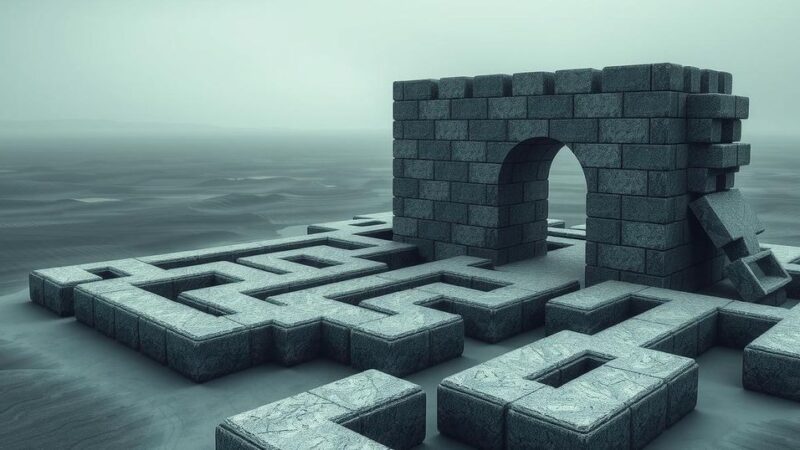Iran has issued veiled threats in response to Israeli airstrikes that killed two of its soldiers while Hezbollah launched rockets at Israeli targets. The Israeli strikes were aimed at Iranian military facilities, and while Iran claimed limited damage, it asserted its right to self-defense. The situation has heightened concerns of regional instability, with condemnation from other Middle Eastern entities.
Iran has issued indirect threats following a series of Israeli airstrikes that resulted in the deaths of two Iranian soldiers. In a statement released by the Iranian Foreign Ministry, it was asserted that Iran possesses both the right and responsibility to defend itself against foreign aggressions. This warning comes in conjunction with Hezbollah’s recent rocket attacks targeting Israeli positions in southern Lebanon. The Israeli Air Force conducted what it characterized as “precise strikes” aimed at critical military infrastructure, including facilities dedicated to drone and missile production as well as air defense installations. These airstrikes were reportedly a response to recent missile attacks on Israel purportedly launched by Iran. Media sources indicate that the strikes specifically targeted a Russian-made S-300 air defense system at Imam Khomeini International Airport among other strategic sites used in prior assaults on Israel. Despite the severe rhetoric from Iranian officials, reports suggest that there was no imminent retaliation planned by Tehran at this time. The Iran state media agency Tasnim reported that while two soldiers were killed in the attacks, the damage incurred was deemed “limited.” In conclusion, the situation has raised concerns of escalating tensions across the region, as noted by the US government, which urged Iran to cease its attacks to avoid further conflict. The Taliban and other Middle Eastern factions have condemned Israel’s actions, reflecting widespread apprehensions about potential instability in the area. Meanwhile, Hezbollah has engaged in hostilities, launching multiple rockets into northern Israel, further indicating a turbulent security environment in the region.
This article discusses the unfolding situation between Iran, Israel, and Hezbollah, particularly focusing on the recent Israeli airstrikes that resulted in Iranian casualties and Iran’s subsequent threats. The historical context includes ongoing hostilities between these entities, with Iran’s support for militant groups like Hezbollah, as well as Israel’s concerns over Iran’s military capabilities and aggressions. The article highlights how these tensions have not only affected the direct actors but have also raised alarm in the broader Middle Eastern context, prompting reactions from various regional governments.
The tensions between Iran and Israel, exacerbated by recent military confrontations, illustrate the precarious nature of peace in the region. As Iran asserts its right to defend itself and Hezbollah intensifies its military actions, the potential for a broader conflict looms large. The international community, particularly the United States, acknowledges the need for de-escalation to avert a crisis while dealing with the complexities that arise from these hostilities.
Original Source: nypost.com






